A week ago, we bravely remembered it was September, and realizing that the weather was about to take an earnest turn, threw our two old men into the horse trailer and drove up the mountain. It was a simple ride, quiet – lots of trotting, especially up mountain trails. I let Zi have his head. He decided what he wanted to do. But about half way up, his poor feet – unused to real work this year – began to get tired, and he gave me fits about having to go so darn far – especially when it was steep downhill going, which he hates. So I made him walk in streams to cool his feet off and kept him moving. Dustin never got a chance to do his sudden-turn-around-right-under G trick. It was marvelous, really. Beautiful. Peaceful. It was wonderful.
And go here to see another canyon, shot by a brilliant friend. And here to see another aspect of another canyon.
I love May. There is the time when all things are at their apex. The grass is deep—incredibly green —as much like a deep velvet as anything not velvet cam seem. Lawn and leaf, bold and vital—lilies of the valley and wind flower and crocus springing from the ground with eagerness. And if it is not still raining, the rest of us are running barefoot through all of this like perfect cheerful heathens. This isn’t even a time of hope – it’s a time of realization – burgeoning, robust – a world certain that life has finally come to stay.
In the backs of our minds, we know better. We know that this flash in the pan, leaping lamb sort of feeling is soon going to give way to lawn fertilizing and fixing broken sprinklers and mowers—to dead-heading geraniums and roses and painting houses and all kinds of the things you have to do to keep your blessings in flow. Still, it’s a wonderful time.
I don’t know why I bother to take pictures. I could just go back and harvest the ones I shot the other dozen times we’ve been up there in the last few years. Here you see the gorgeous and crystalline mountain waters irrigating a high valley field. I love this place. I call these little streams my copious freshets.
All of that said, I have to admit that Autumn is my favorite. I love the first chill in the air. I love the thought of being able to wear long sleeves again. I love sweaters and jackets and socks. I love the thought of hot chocolate and a fine fire on the hearth. And the excuse to stay home by that fire with a good book and a warm blanket. But most, I love the changing of the leaves.
I don’t know why this affects me so deeply. Maybe it’s nothing more than the color itself – so wild and unexpected – things familiar suddenly flaming into brilliance, whole mountainsides becoming a patchwork of all the hot and glorious colors. Or maybe it has to do with the tipping of seasons, like that moment when you find yourself poised at the top of a rollercoaster’s greatest rise.
Or maybe it’s because, after the boisterous energy of summer, the almost obligation to get out there and not waste a minute of the beauty, maybe after all that, the suggestion of a quieting time, of cozy peace and stillness is not unwelcome at all.
Zion looks at me as though to say, “What is this? A photo shoot or a trail ride? Could we go already?”
When my grandmother eventually became forgetful, repeating things over and over – not seeming to listen to what people were actually saying to her, my mother taught me this metaphor: aging is like the changing of the seasons. She said, when the chlorophyll makes unfurling leaves fat with youth and strength, they are green to our eyes. And they remain green as long as the sun shines on them and the rain falls. But when the world dries up, and there is finally a chill in the night air, the chlorophyll begins to weaken and fade – the leaf aging. As the chlorophyll recedes then the carotene and the anthocyanins that have been a part of the leaf all along finally become visible. In other words, the leaf was always yellow or red or orange or purple – those colors were just swamped by the robust strength of the chlorophyll.
People are like this, Mom told me. In the end, when their life force begins to drain away, their true underlying character becomes glaringly evident. And that seemed reasonable. My grandmother had never really listened to what people were saying to her. She’d never been much of a philosopher. She had a plump, flirty southern belle when she was young, and was a plump, silly party woman when she was married. Education had not been a concern for her. She spent her afternoons watching soap operas and she smoked very heavily – a thing which may show up in my lungs some day, as she lived with us when I was little for about six or seven years. So the fact that she didn’t listen and that she made the same sort of silly observations over and over – these things were not surprising.
On the other hand, she had to support her small family while her husband, who had an engineering degree and built roads and bridges, having developed TB in his young manhood, was sent to what they called a sanatorium for a year or so in hopes that his lungs would dry up. And when he died at an early age of heart disease, she again supported her family. She worked retail. And she was a medical receptionist.
On the other hand again, it was my mother who became the mother, as I understand it – managing the home, bringing up her brother, taking on responsibility at an early age – which included the Great Depression. My mother was entitled to her opinions. And so, for a while, I believed her metaphor too.
A study in polite non-cooperation. Until one second ago, Dustin had been lazily face forward. Then G presented him with that bridle. Suddenly, it was very important that Dustin be looking intently at me. Not avoidance, of course. Its impolite to ignore the photographer. Not at all impolite to ignore a bridle.
When that didn’t work, he suddenly had to examine something on the ground.
This is a self portrait. One of my favorites. I looked down and saw my relaxed, comfortable hands as I waited for G to saddle up, and I realized that I loved sitting there quietly. Part of my horse. I saddle faster than he does because my almost traditional western endurance saddle is English rigged. He’s stuck with Western.
I don’t believe it anymore. Not since I’ve learned a little about Alzheimer’s. Not since I’ve seen my own mother sinking into it, turning almost violent in her anger—to the point where the nurses where she’s being cared for had to medicate her so they could deal with her at all. She said terrible things to them. She rose up in a defiance I had never seen in her in all my life. It was a shock. And was this, then, my “real” mother? A woman of such self-control and with such a sense of duty to the way things should be that she had simply been reining in that underlying angry passion for all those years?
After that angry period – which I suspect is the brain’s panicked response to being invaded by a gray, slimy plaque that seems almost purposeful in its relentless incursion – my mother once again became her sweet self. Unable to speak sense or recognize people or even walk under her own power. But still willing and sweet. I didn’t need to watch her chlorophyll to fade to know that this was her true underlying character. I had seen it all her life. A disease is a disease. By definition it is a total disruption of the chemical balance in the body and brain. It makes emotional decisions that over-ride the real personality of a person. There is nothing natural or true about it – except that it is. And we have to deal with what is.
What is perhaps more true is that an old, tired leaf can erupt, as it dies, in beauty so poignant and compelling as to move the heart to joy. That nothing is over until it’s over. And that the promise of peace and a season of rest is built by the creator into the creator’s design by no accident – one of the many lessons amplified and repeated by the very structure of life on this planet.
The road home.
Margaret, when she was twenty something—and so was the century.
I’m kinda hoping that, as the next few decades roll by for me, I get to blaze up in clear yellows and deep reds, orange as bell tones. Wild and beautiful for whatever time I am allowed. A quick fade to crackly brown has never appealed to me.
Sixty some odd years later.
I guess we’ll see. We’ll just have to see how it goes.

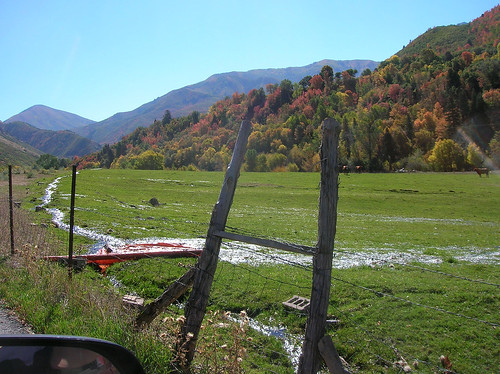
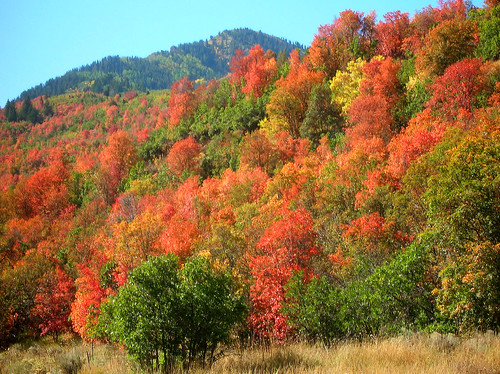
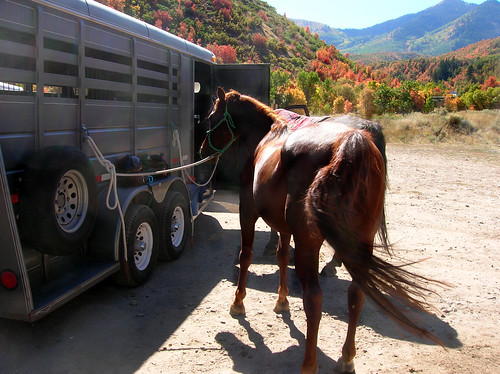
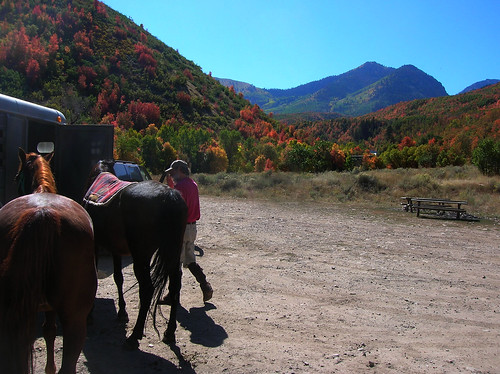
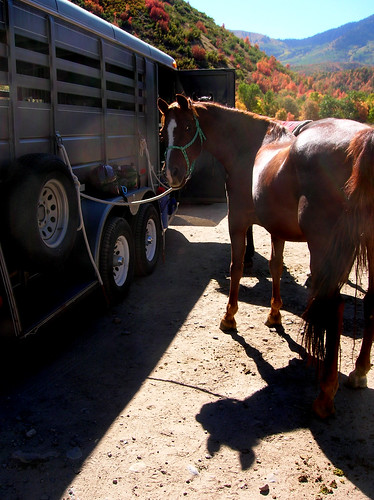
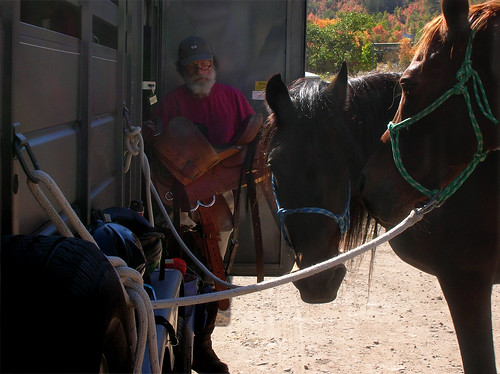
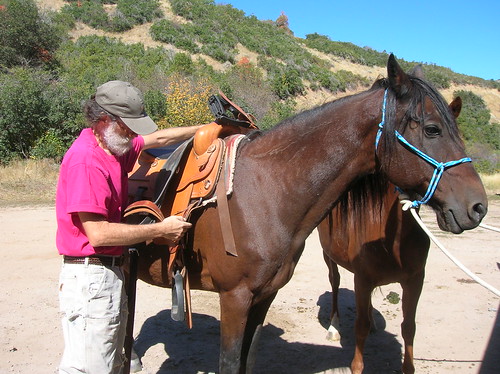
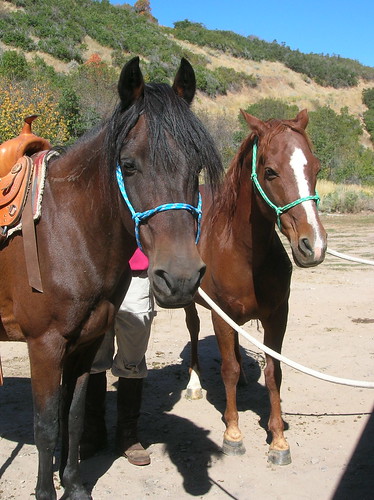
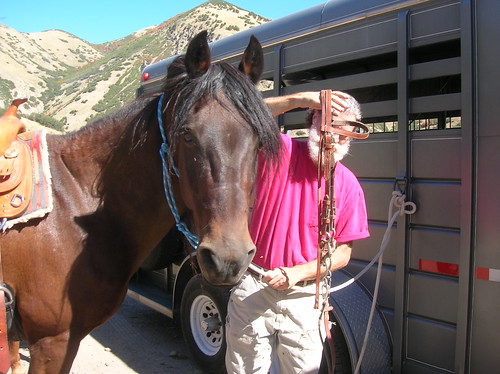
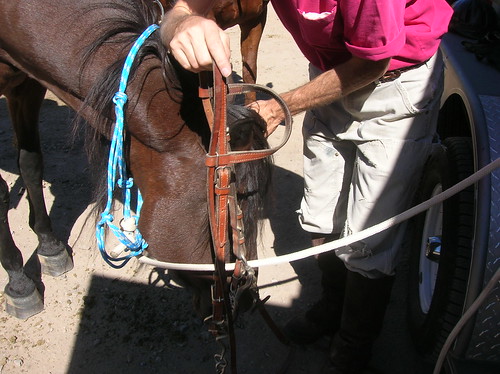
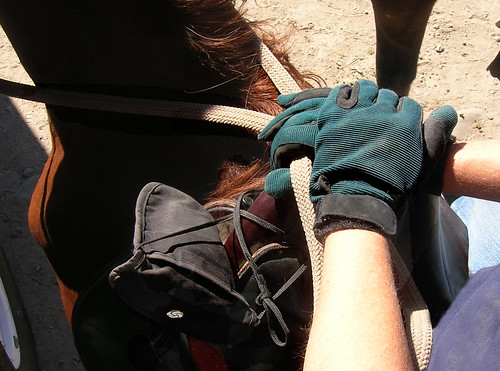
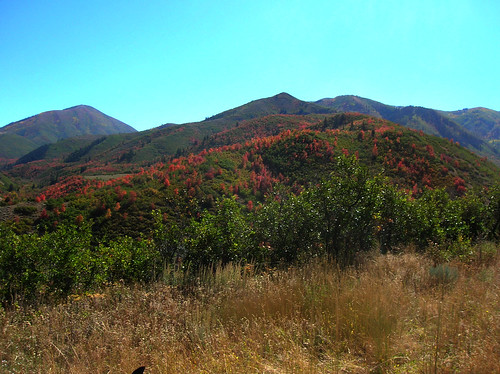
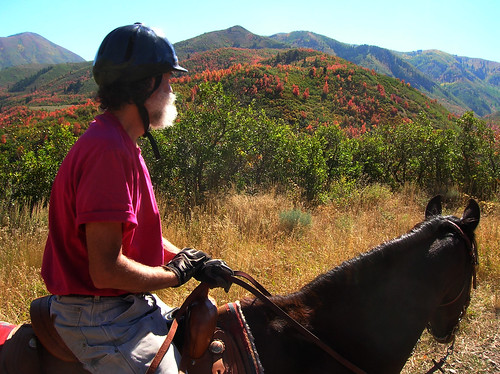
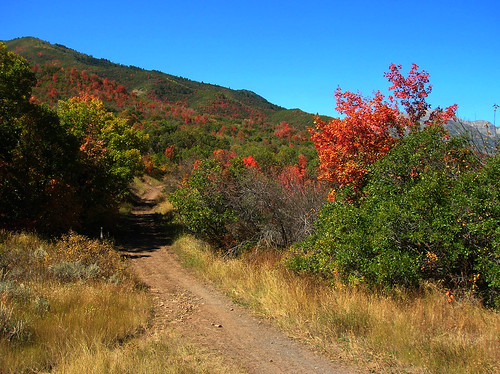
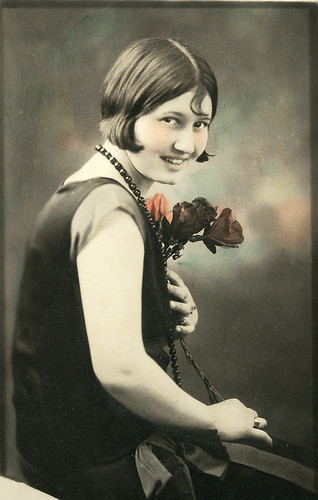
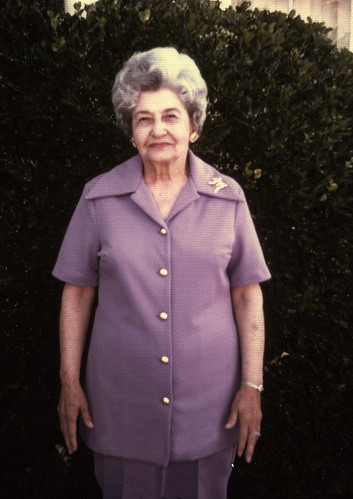

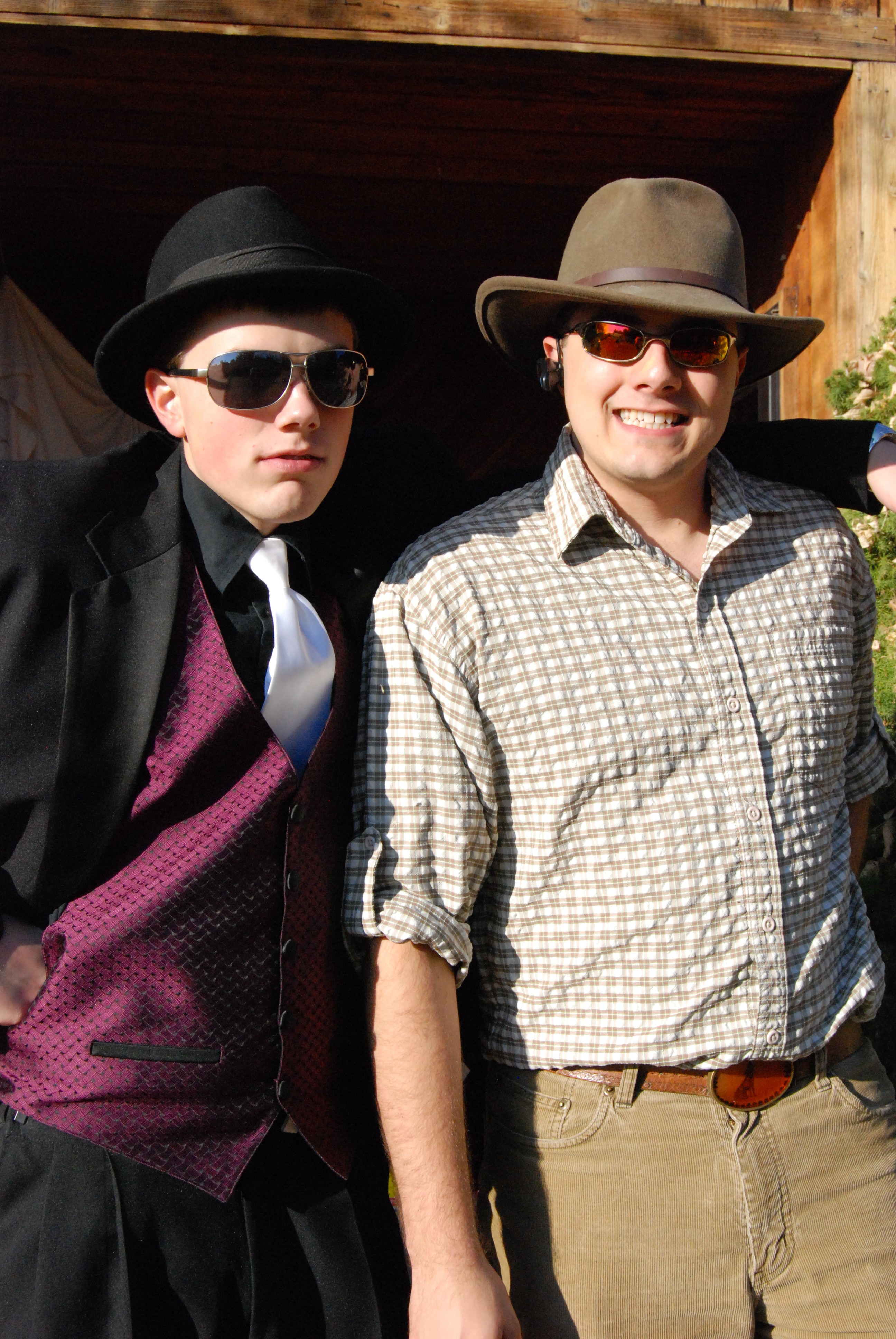
27 Responses to ~:: Up the Hill ::~